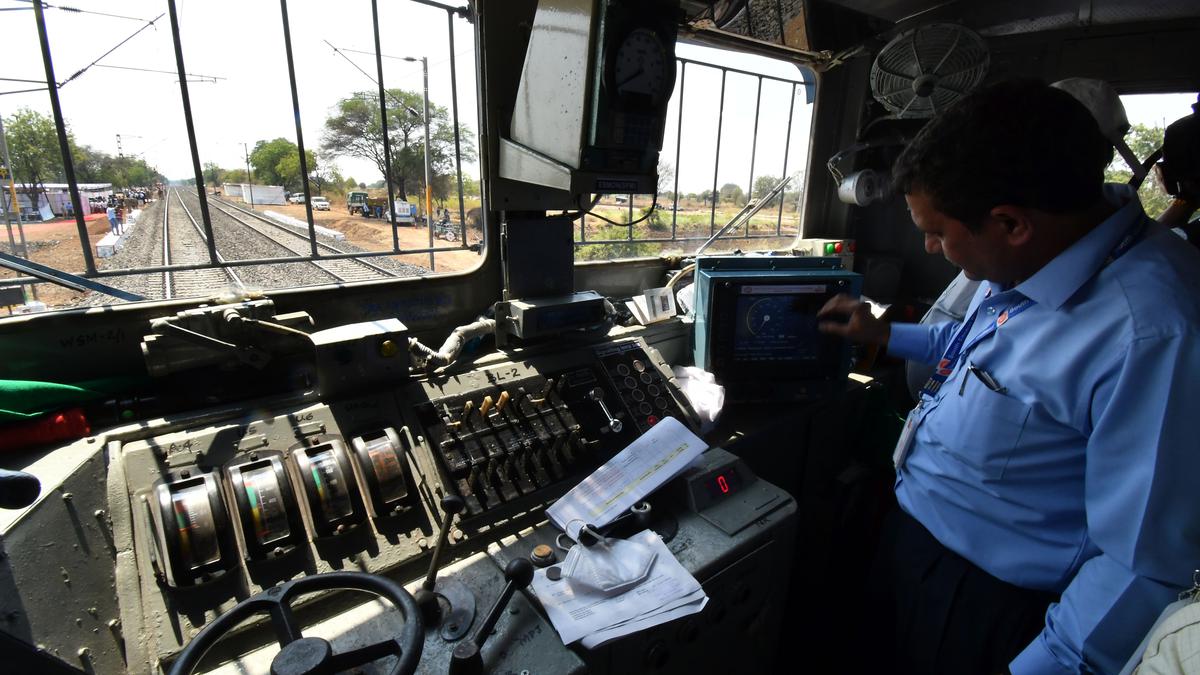
Howrah-Chennai line has no Kavach system yet
The Hindu
The indigenously developed automatic train protection system -- Kavach -- has been deployed across SCR and is being deployed across the Indian Railway network according to the priority set by Railway Board
Kavach — the state-of-the-art indigenously developed automatic train protection system (ATPS) project — has not been implemented yet on the Howrah-Chennai line passing through at least four railway zones, although South Central Railway (SCR) has become pioneer in implementation of the much needed system over the last two years.
Indian Railway has given first priority to high density routes (HDR) and on New-Delhi-Mumbai and New Delhi-Howrah sections for 160 kmph with automatic block signaling and centralised traffic control. The reasoning is that since such sections have higher chances of human errors on part of drivers resulting in accidents as trains run closer to each other. Strangely, the Howrah-Visakhapatnam-Vijayawada-Chennai line has not been prioritised for the project.
But, Kavach system has been deployed over 1465 kms in SCR limits with 77 numbers of locomotives and 135 stations by March this year. The SCR has covered Manmad-Mudkhed-Nizamabad-Sitafalmandi-Kurnool-Guntakal section; Parbhani-Bidar-Vikarabad-Wadi and Wadi-Sanatnagar sections.
Kavach is an indigenous ATP system developed by Research Design and Standards Organisation (RDSO) in collaboration with Indian industry and trials facilitated by the South Central Railway. It is a state-of-the-art electronic system of Safety Integrity Level-4 standards.
Kavach is meant to provide protection by preventing trains to pass the signal at danger (red) and avoid collision. It activates the train braking system automatically if the driver fails to control the train as per the speed restrictions. In addition, it prevents collision between two locomotives equipped with functional Kavach systems. Three Hyderabad-based companies had been empanelled to manufacture Kavach equipment.
Union Railway Minister Ashwini Vaishnaw had peronsally inspected the trial of Kavach working system between Gullaguda-Chitgidda railway stations on Lingampally-Vikarabad sections of Secunderabad division of SCR last March.
Secunderabad based Indian Railways Institute of Signal Engineering & Telecommunications (IRISET) hosts the ‘Centre of Excellence’ for Kavach. IRISET has been mandated by the Railway Board to train the inservice railway staff on Kavach. The Institute’s Kavach lab carries out round the year training programmes.





















 Run 3 Space | Play Space Running Game
Run 3 Space | Play Space Running Game Traffic Jam 3D | Online Racing Game
Traffic Jam 3D | Online Racing Game Duck Hunt | Play Old Classic Game
Duck Hunt | Play Old Classic Game











